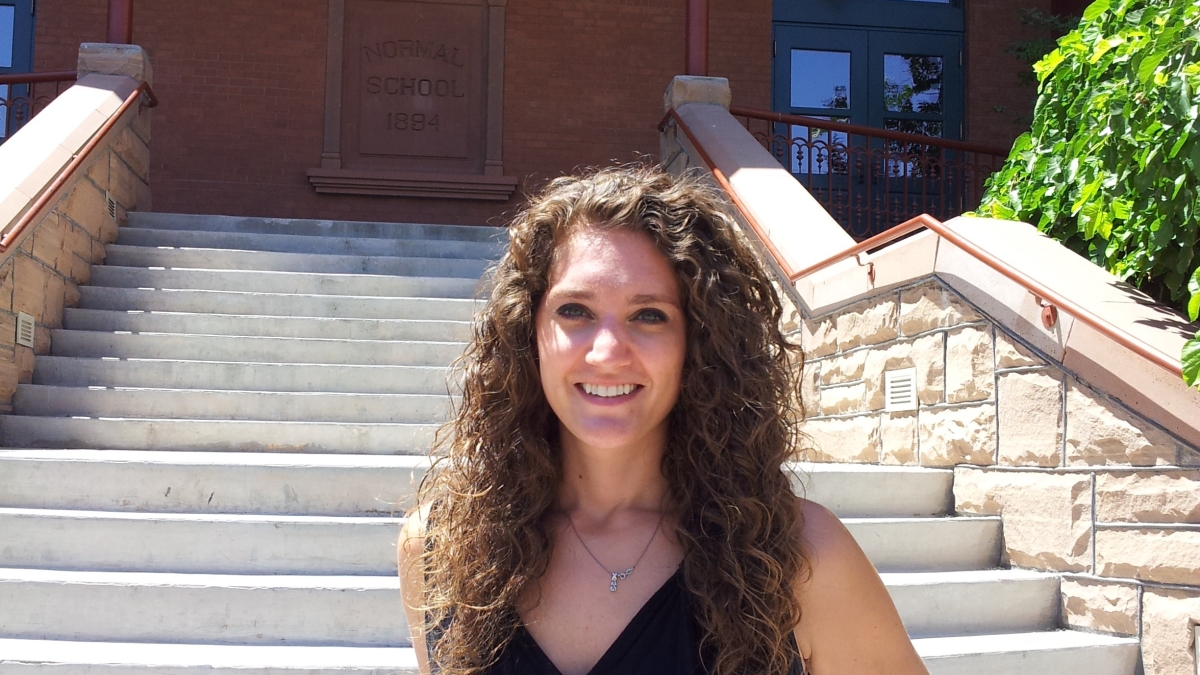Digging deeper into factors that make some individuals susceptible to PTSD

According to Ann Hoffman, a doctoral student in psychology at Arizona State University, stressful life events may predispose some individuals to suffer from Post-Traumatic Stress Disorder (PTSD). Research shows that 10-20 percent of people exposed to psychological trauma develop the condition.
“Chronic stress changes the brain wiring and makes it more susceptible to impairments,” she says. “It may also result in heightened fear conditioning, a behavioral pattern that is learned to predict aversive stimuli. We found that a vulnerable brain might experience sensitized fear and has trouble inhibiting the response in the absence of a traumatic event.”
The doctoral student will present preliminary findings from her research project at the International Behavioral Neuroscience Society (IBNS) conference that takes place June 25-30 in Dublin, Ireland. She is one of two ASU students, along with eleven other finalists, who were selected from a pool of hundreds of applicants from across the globe to have received an IBNS travel award to journey to Ireland.
Hoffman joined the chronic stress laboratory run by Cheryl Conrad, associate dean of ASU’s College of Liberal Arts and Sciences’ division of natural sciences, to study the effect of stress on brain plasticity - i.e., the ability of the brain to change and adapt to its environment. Repeated stress activates the body’s stress response that, in turn, results in secretion of stress hormones. These chemicals then affect brain regions associated with memory, emotional reaction, fear and learning.
Hoffman says the research findings add to the growing literature on how chronic stress affects cognition, learning and memory processing. She hopes to fine-tune a model of PTSD that will involve developing a model of vulnerability with chronic stress as an environmental risk factor.
“I want to design research around vulnerable individuals that helps recognize factors that set them apart from normal individuals,” she says. “Researchers can then focus their attention on the best ways to circumvent or attenuate the fear.”
Hoffman, a Greenville, Pa. native, comes from a background of research on drugs or environmental manipulations that improve cognitive recovery after traumatic brain injury. She has published 14 peer-reviewed journal papers.
In addition to her research, Hoffman was also the recipient of an ASU Commission on the Status of Women Outstanding Achievement and Contribution Award in 2012. She was nominated by Conrad to recognize her work in mentoring students, especially women, from diverse backgrounds and encouraging them to pursue academic research.
Conrad says Hoffman’s ability to go beyond traditional thinking and ask challenging questions makes her exceptional.
"Ann’s research potentially offers new insights into how to treat PTSD,” Conrad says. “She has already received impressive awards, such the Cialdini Dissertation Award, and is being actively recruited for postdoctoral positions in top research labs. She is also a compassionate mentor and a thoughtful advocate for others, having helped graduate students and undergraduates achieve success. She is a rising star."
Hoffman plans to pursue an academic postdoctoral fellowship in a lab that primarily focuses on the neurobiological mechanisms of fear learning and memory.
“I want to tie in my research experiences related to traumatic brain injury, chronic stress and fear conditioning to pursue a career focused on understanding and developing effective treatments for the growing debilitating disorder that is PTSD."